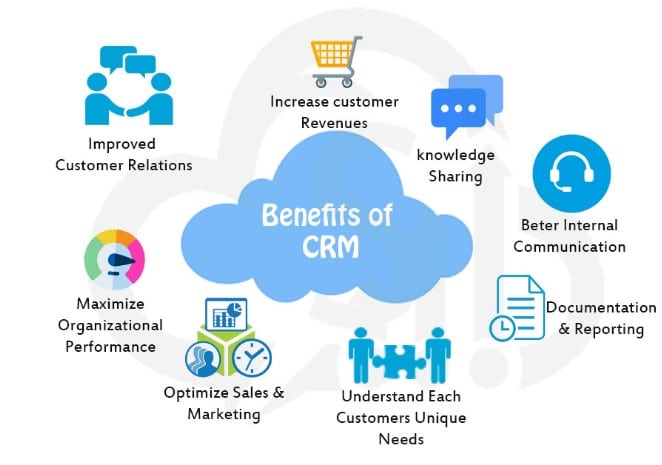Mastering CRM: 10 Essential Tips for Business Success
In today’s digital age, Customer Relationship Management (CRM) has become an essential tool for businesses to improve customer engagement and retention. A well-executed CRM strategy can help companies enhance their customer experience, increase sales, and achieve long-term growth.
However, implementing CRM is not a simple task, and it requires careful planning and execution. In this article, we will discuss ten essential tips for mastering CRM and achieving business success.
Table of Contents
Understanding the Basics of CRM
Define Your CRM Objectives
Choose the Right CRM System
Customize Your CRM System
Integrate Your CRM with Other Business Tools
Train Your Employees
Collect and Analyze Data
Automate Your CRM Processes
Continuously Monitor and Update Your CRM
Measure and Evaluate Your CRM Performance
1. Understanding the Basics of CRM
CRM is a business strategy that focuses on building and maintaining strong relationships with customers. It involves collecting and analyzing customer data to gain insights into their behavior, needs, and preferences. With this information, businesses can develop personalized marketing campaigns, provide better customer service, and make informed business decisions.
2. Define Your CRM Objectives
Before implementing CRM, it’s essential to define your objectives and goals. What do you want to achieve with your CRM strategy? Do you want to increase customer retention, improve customer satisfaction, or boost sales? Defining your objectives will help you choose the right CRM system and customize it to meet your specific needs.
3. Choose the Right CRM System
Choosing the right CRM system is critical to the success of your CRM strategy. There are many CRM systems available in the market, each with its features and functionalities. You need to choose a CRM system that meets your business requirements and aligns with your objectives. Some popular CRM systems include Salesforce, HubSpot, and Zoho CRM.
4. Customize Your CRM System
Once you have chosen the right CRM system, you need to customize it to meet your business needs. Customization involves configuring the system to collect and analyze data specific to your business. You can customize your CRM system by adding custom fields, creating custom reports, and setting up workflows.
5. Integrate Your CRM with Other Business Tools
Integrating your CRM system with other business tools can help you streamline your business processes and improve efficiency. For example, integrating your CRM system with your email marketing tool can help you send targeted email campaigns to your customers. You can also integrate your CRM system with your accounting software to streamline your invoicing and billing processes.
6. Train Your Employees
Training your employees on how to use the CRM system is critical to its success. Your employees need to know how to collect and analyze customer data, how to use the CRM system to improve customer engagement, and how to make informed business decisions based on the data collected.
7. Collect and Analyze Data
Collecting and analyzing customer data is the backbone of CRM. You need to collect data from various sources, including social media, website analytics, and customer feedback. Analyzing this data will give you insights into customer behavior, preferences, and needs, which you can use to develop personalized marketing campaigns and improve customer engagement.
8. Automate Your CRM Processes
Automating your CRM processes can help you save time and improve efficiency. You can automate processes such as lead nurturing, email marketing, and customer support. Automation can also help you reduce human error and improve data accuracy.
9. Continuously Monitor and Update Your CRM
CRM is not a one-time task, and it requires continuous monitoring and updating. You need to ensure that your CRM system is continuously capturing and analyzing data, that your employees are properly trained, and that your CRM system is meeting your business objectives. Regularly updating your CRM system will also help you stay ahead of the competition and improve customer engagement.
10. Measure and Evaluate Your CRM Performance
Measuring and evaluating your CRM performance is crucial to understanding the impact of your CRM strategy on your business. You need to track key performance indicators (KPIs) such as customer satisfaction, customer retention, and sales revenue to evaluate the success of your CRM strategy. You can use this data to make informed business decisions and adjust your CRM strategy accordingly.
In conclusion, CRM is a powerful tool that can help businesses improve customer engagement and achieve long-term growth. However, implementing a successful CRM strategy requires careful planning, execution, and continuous monitoring. By following these ten essential tips, businesses can master CRM and achieve business success.
FAQs
What is CRM?
CRM stands for Customer Relationship Management, which is a business strategy that focuses on building and maintaining strong relationships with customers.
What are the benefits of CRM?
The benefits of CRM include improving customer engagement, increasing sales, and achieving long-term growth.
How do I choose the right CRM system for my business?
You can choose the right CRM system for your business by defining your objectives, researching available options, and selecting a system that aligns with your business needs.
How do I customize my CRM system?
You can customize your CRM system by adding custom fields, creating custom reports, and setting up workflows.
How do I measure the success of my CRM strategy?
You can measure the success of your CRM strategy by tracking key performance indicators (KPIs) such as customer satisfaction, customer retention, and sales revenue.
